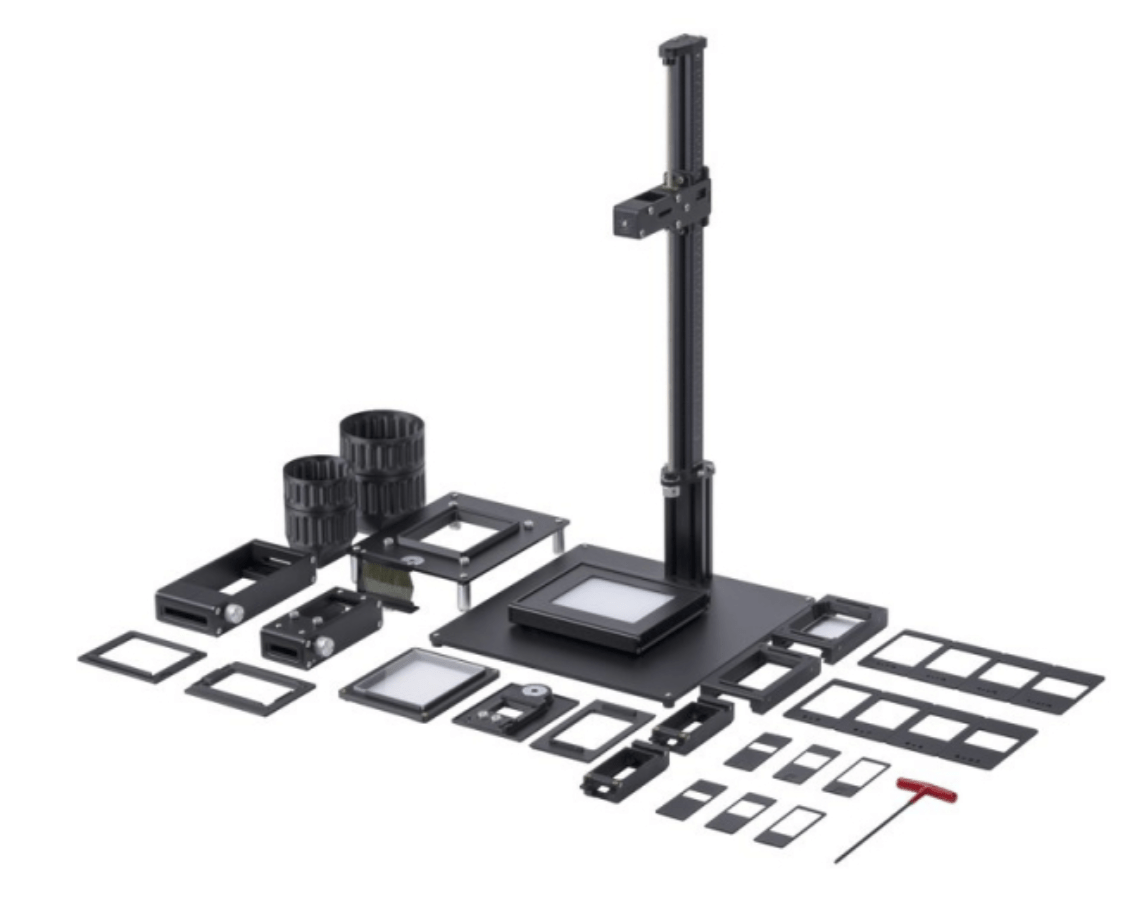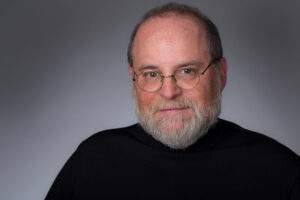Digitizing Color, Black & White Negatives and Slides Using a DSLR Camera with Eric Joseph (In-Person Learning – One session)
- Saturday
May 10, 2025
10:00 am - 5:00 pm
If you have an archive of film negatives and slides you are probably used to relying on a traditional scanner to convert the images into a digital format for archiving, posting images on a website and/or creating files for printing. Guess what, there is a better way! Copy those negatives and slides with your DSLR camera and a macro lens. It’s faster, easier, better quality and never goes out of date.
Tuition: $300 (Become a Member today and received up to 20% off!)
Limited to 8 students.

About
If you have an archive of film negatives and slides you are probably used to relying on a traditional scanner to convert the images into a digital format for archiving, posting images on a website and/or creating files for printing.
Guess what, there is a better way! Copy those negatives and slides with your DSLR camera and a macro lens. It’s faster, easier, better quality and never goes out of date.
Scanners are old technology. They are slow, attract dust, and are a bit unreliable. Dedicated film scanners such as Nikon Coolscans and Imacon are no longer made and are very difficult to get repaired. Further, the software to support these devices is no longer be updated or supported, not to mention you can’t connect them to a modern computer anymore due to the evolutionary changes in cable connections.
If you are shooting film and relying on your local lab to provide scans, you are not getting a quality digital file due to the limitations of the 20-year-old, 6 mega-pixel sensors that are in every Fuji Frontier or Noritsu mini lab film processing machine. Those sensors were designed to only capture enough digital information to be able to expose color darkroom paper with a laser at sizes up to 12×18 and only as an sRGB, 8-bit, JPG file format.
Using a copy stand system with negative holders that keep your negatives flat and illuminated with very high quality, evenly illuminated light sources with very high color rendering index, you can capture your valuable analog images and convert them to a digital format in fractions of a second and they can be Adobe RGB (1998) 16-bit RAW files. You can even acquire full border cassettes to capture the edge-marking or what some call the “rebate area” of the film.
Bring your 35mm, Medium format and 4×5 film and using products from Negative Supply and a Canon DSLR Camera with a Canon 100mm Macro lens. Eric Joseph will demonstrate how you too can digitize your images far faster and with far better results than you could ever get from the old technology dedicated film scanners or flatbed scanners with film scanning capability.
Topics covered and class workflow:
- Capture images tethering in Lightroom
- Converting RAW files using a Plug-In program for Lightroom called Negative Lab Pro
- Processing the RAW files in Lightroom for output to print
- Printing images in our digital lab up to 13×19
 Eric Joseph graduated from California State University, Northridge in 1985 with a BA degree in Art, Specializing in Photography. His career at Freestyle Photographic & Imaging Supplies started in 1986 starting as sales person in the retail store working his way up to his current position as Co-President/Chief Products Education, Sales & Support Officer. As a respected industry insider Eric has established a solid reputation as a technical and creative resource in photographic processes, both darkroom and digital.
Eric Joseph graduated from California State University, Northridge in 1985 with a BA degree in Art, Specializing in Photography. His career at Freestyle Photographic & Imaging Supplies started in 1986 starting as sales person in the retail store working his way up to his current position as Co-President/Chief Products Education, Sales & Support Officer. As a respected industry insider Eric has established a solid reputation as a technical and creative resource in photographic processes, both darkroom and digital.
Details
- One Session
- Date: Saturday, May 10, 10 am – 5 pm PST
- Enrollment Limit: 8 participants
- Skill/Experience Level: Open to all levels
- Tuition: $300 (Become a Member today and received up to 20% off!)
- Location: 252 South Los Angeles Street, Los Angeles, California, 90012
- Nearby Lodging: The Miyako Hotel – 328 E. First Street Los Angeles, California, 90012, United States, The Double-Tree by Hilton Hotel, Los Angeles Downtown – 120 South Los Angeles Street, Los Angeles, California, 90012, USA
- Not Included: Meals, snacks, bottled water and transportation (to and from the workshop location). Students are encouraged to bring their own food or order from nearby restaurants. Ride share apps or public transit are recommended for those without transportation. Students will be notified of food and parking options in the area.